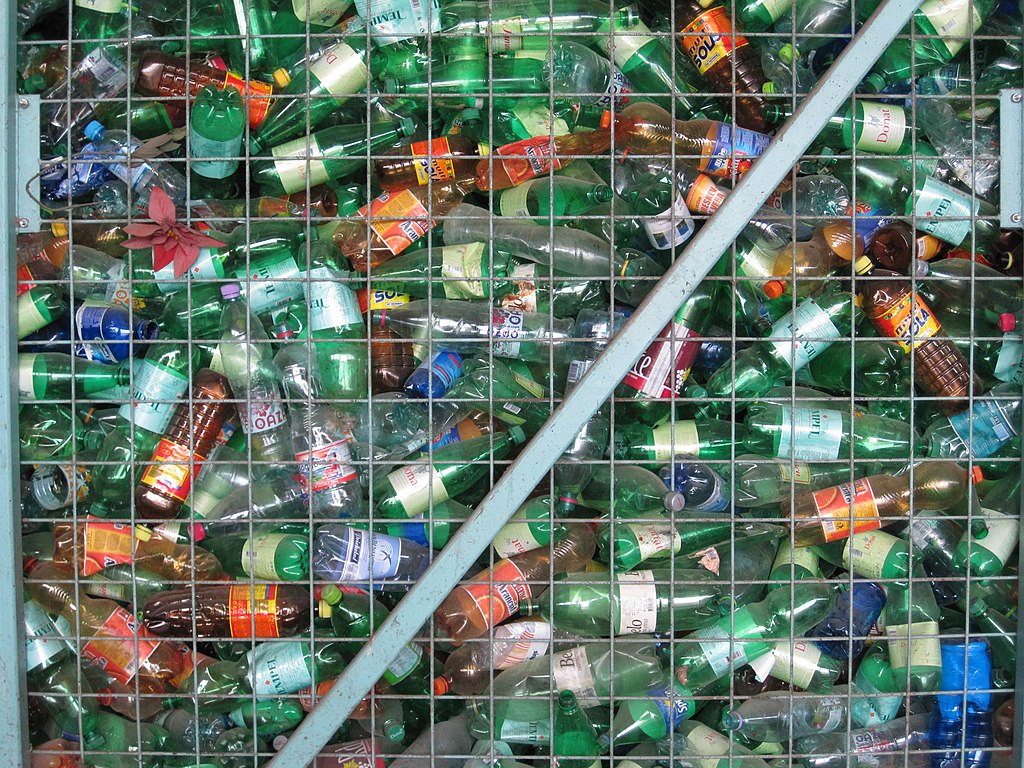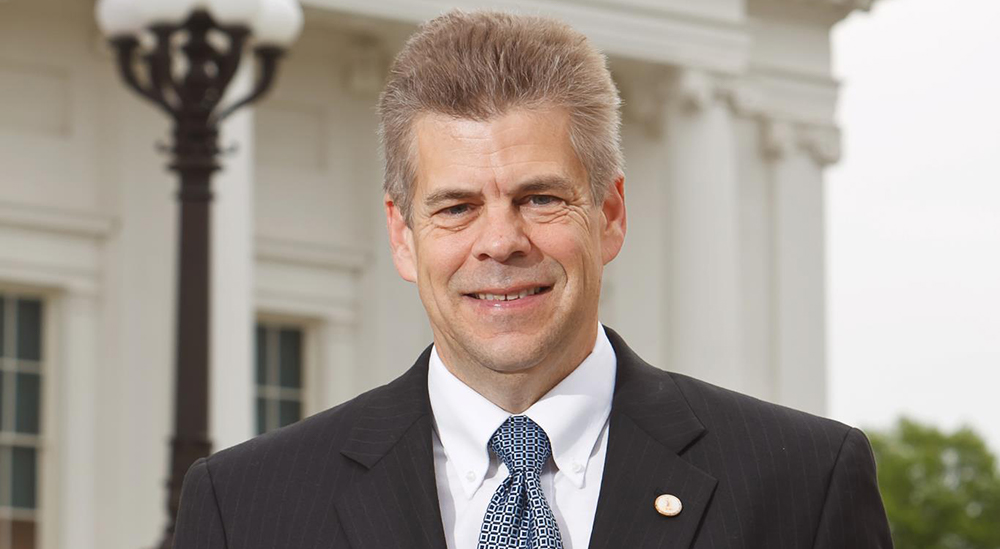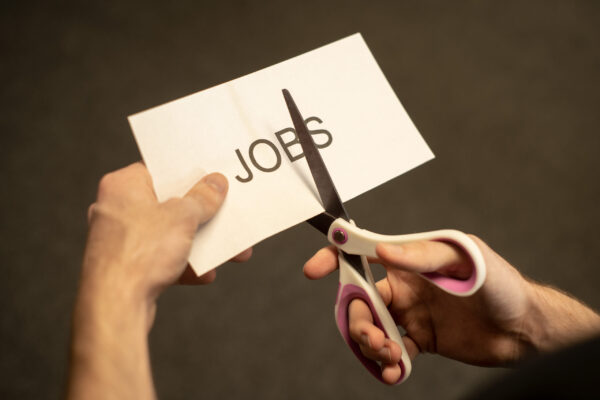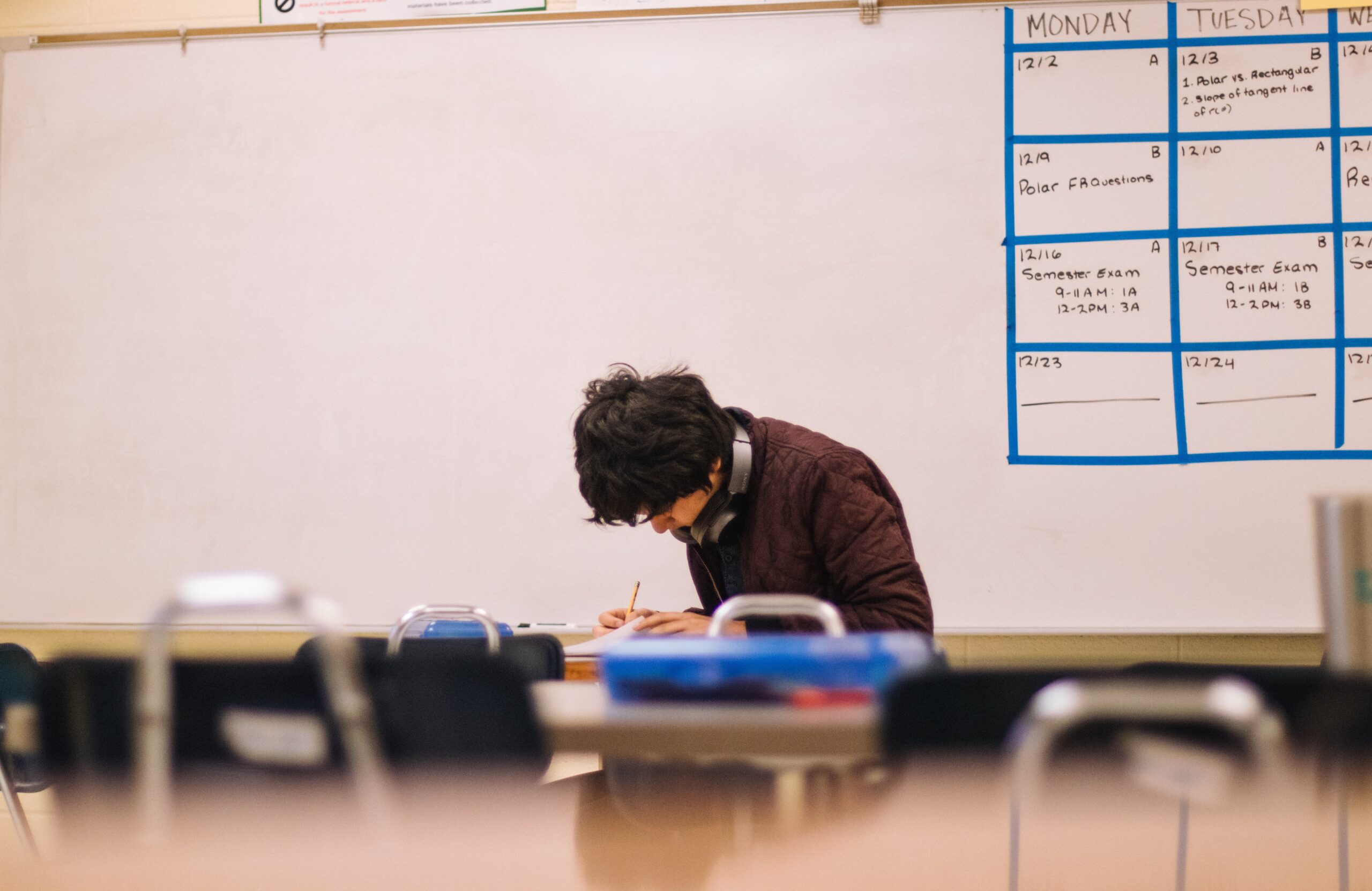Governor Glenn Youngkin has rescinded an executive order from former Governor Ralph Northam that ordered Virginia agencies to phase out single-use plastics and Styrofoam. Youngkin issued a new executive order to promote recycling in state agencies and eliminate food waste.
“Too often in the past, Virginia has been presented with a false choice between saving our environment and growing our economy. The growing market for post-consumer recyclables demonstrates that we can do both,” Youngkin said in a press release. “We need to bridge that disconnect to better conserve our natural resources, reduce waste that goes out to landfills and promote new clean energy jobs here in Virginia. We should be focusing our resources and energy on providing a cleaner supply of recyclable materials.”
In March 2021, Northam signed a ban on food vendors using Styrofoam; that bill takes effect for large vendors in July 2023, and for all vendors in 2025. At the same time, Northam signed an executive order requiring executive branch agencies to stop using non-medical single-use plastic and Styrofoam, in a phase-out that started 120 days from the order and required 100 percent reduction by the end of 2025. State higher education institutions were among the agencies required to comply with the order.
“Plastic pollution has emerged as one of the most challenging environmental problems of our lifetime, with devastating impacts on our oceans and coasts, and many questions about human health effects,” then-Secretary of Natural Resources Matthew Strickler said at the time. “Decades of experience have shown us that breaking our plastic addiction is the only truly effective pollution reduction strategy.”
After Youngkin rescinded the Northam executive order, some conservation organizations criticized the decision.
“The notion that recycling is a sustainable solution is a false promise promoted by polluters. Youngkin’s decision to reverse the state’s plan to phase out single-use plastics is a clear step in the wrong direction that will result in irreversible damage. Only a tiny fraction of the plastic created is recycled, with most becoming litter and plastic pollution in our waterways and landfills that disproportionately impact the health of vulnerable communities,” Sierra Club Virginia Chapter Director Kate West said in a press release.
Youngkin spokesperson Macaulay Porter told The Virginia Star, “The governor wants to encourage and promote recycling which the previous orders didn’t do. Previous executive orders limiting prohibition of single-use plastic in state entities, universities, etc. are not sensible as there will be a continued market for plastic bottles, recycling, and other materials. We recycle at lower levels now than a decade ago at the same time that manufacturing plastics has increased. The governor is focused on educating and promoting recycling for the future as opposed to banning things in the past.”
Youngkin’s Executive Order 17 doesn’t affect the food vendor Styrofoam ban. However, in place of Northam’s single-use plastics ban for agencies, Youngkin’s order requires executive branch state agencies to increase awareness of the importance of recycling, requires signage and notification to employees of recycling collection areas, and discuss the value of waste diversion. It also requires the Department of Conservation and Recreation to create a plan to increase recyclable materials capacity. The order also requires the creation of an annual report on state agency recycling.
“Americans today recycle less than they did a generation ago, yet there are more opportunities for post–consumer recycled products than ever before. Recycling and reuse activities account for over 750,000 jobs nationwide,” EO 17 states.
The order also requires agencies to encourage using biodegradable and post-consumer recycled (PCR) products. It requires the Department of Environmental Quality and other stakeholders to identify opportunities to attract more PCR-product companies to Virginia.
Additionally, the order requires the DEQ and the Department of Agriculture and Consumer Services to work with large food suppliers to reduce food waste.
“Food waste comprises the single largest category of waste by volume disposed of in landfills. We need to conserve our natural resources, reduce the amount of recyclable materials and waste that goes into landfills, and promote new clean energy jobs here in Virginia,” the order states. “Recognizing and promoting the importance of recycling has the potential to positively impact the commonwealth’s environment, providing cleaner air and water, as well as create new clean technology jobs.”
This article originally appeared in The Virginia Star. The opinions expressed in this article are those of the author and do not necessarily reflect the positions of The Republican Standard.





